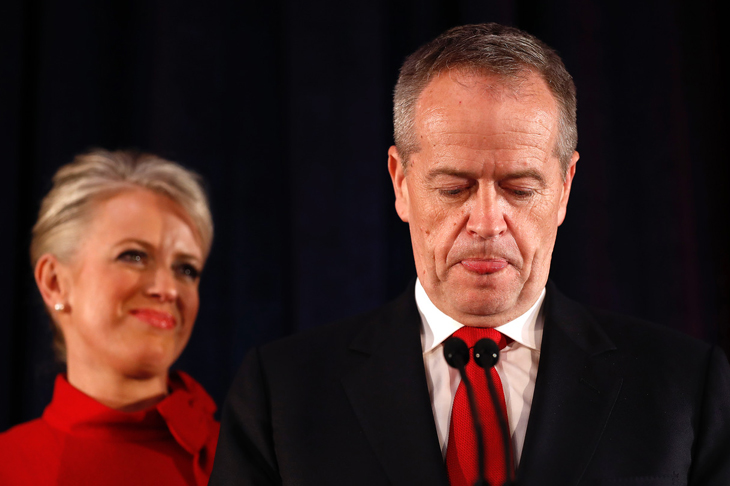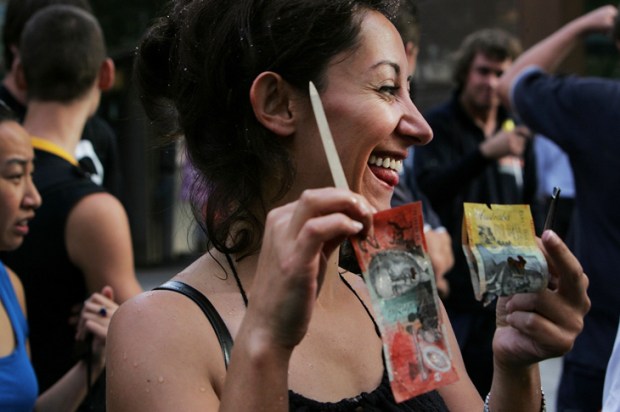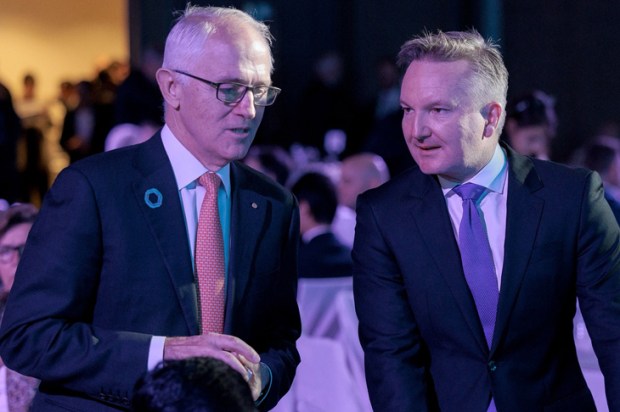I miss Bill Shorten. There – I’ve said it. It’s not because of the absence of those daggy shots of him jogging around recognisable parts of Melbourne. It’s not even the absence of recent photos of him wearing his Chloe’s husband T-shirt.
I miss Bill because of the loss of all those wacky proposals he took to the last federal election. Albo has gone and spoilt it by ditching virtually all of them.
Just think of it – even a few of them (abolition of cash refunds for franking credits; increasing the capital gains tax; all but scrapping negative gearing; a minimum tax rate on trusts) kept an economics commentator in material for literally years. And what was there not to love about the 45 per cent emissions reduction target by 2030 and the lack of any costing?
These proposals were so badly thought out; there was a complete misunderstanding of the basic facts; any costings were hilariously bad – it brings a tear to my eye just thinking of what I am now missing out on.
But I get it. Back in 2019, which seems like a lifetime ago in economist years, there were things called budget discipline, running budget surpluses and paying down government debt. It might seem passé now, but Labor was in a head-to-head struggle with the Coalition to prove that it could be fiscally responsible – indeed, more fiscally responsible than the dreaded Tories.
Former Labor Treasury spokesperson, Chris Bowen, was perceived to have stuffed up badly in the 2016 election campaign, by presenting a four-year budget outlook – the forwards in economist-speak – with a higher cumulative deficit than the Coalition.
But, but, he declared: over 10 years, Labor’s budget position will be better than the Coalition’s because of the additional revenue associated with eliminating (grandfathered) negative gearing. Sadly, for Chris, by this stage, no one was listening.
Come 2019, there was no way that the same mistake was going to be made. Sure, Labor would spend up big on health and education (the details of the benefits were never outlined) but there would be a raft of new taxes directed at the ‘big end of town’ that would fund the largesse.
Sadly for Bill (and Chris), the notion that all these new taxes would be hitting the big end of town was not well supported. And let’s face it, Joe and Josephine Normal suspect that the really big end of town excels at avoiding taxes – and they are not wrong.
Take the proposal to abolish cash refunds for franking credits. To this day, Bill never got it. He was so fixated on the fact that some people were receiving cash from the government notwithstanding the fact that they paid no (or little) tax that he just couldn’t grapple with the concept of dividend imputation.
The basic point is that company tax is essentially a withholding tax prior to dividends being paid to shareholders (the owners of companies). Without dividend imputation, which takes into account the tax already paid by the company, it would be a clear case of double taxation.
And let’s not forget that it was Labor’s Paul Keating when he was treasurer who introduced dividend imputation. The initial exclusion of cash payments was an oversight, rectified by Peter Costello when he was treasurer. When this occurred, there were celebratory drinks parties among the trustees of charities and other not-for-profits.
Labor’s proposal to abolish cash refunds for franking credits (with charities and not-for-profits exempted) was in effect an attack on the least well-off – often self-funded retirees – while the wealthy were unaffected. It was Robin Hood in reverse.
As long as you paid enough tax, Labor would allow you to reduce your tax bill by dint of the franking credits. That’s right – one minute you’re up for $1000 in tax, then you only have to pay $500 because of your holding of franked shares.
In Bill’s world, this was fine but if $500 was handed out in cash to someone else, that was not OK. Geddit? Mate, $500 is $500 whether it’s a cash handout or $500 off the tax bill. And to think he received an MBA from the University of Melbourne?
As for the notion of getting rid of negative gearing, by 2019, the boat had clearly sailed. The fiscal cost of the arrangement was falling as lower interest rates meant that more landlords could actually make money from renting out their properties.
And while there are a few landlords who hold multiple properties, the more typical property owner is a mum and dad with one rental house who are simply aiming to achieve a more comfortable retirement. This was the precise demographic whose votes Labor needed to get over the line.
Fast forward to this year and all those comparisons of fiscal surpluses to be achieved by either side of politics are completely old hat. Given that the Coalition does not envisage any positive budget cash balances being recorded over the next decade, it is perfectly rational for Labor to ditch that contentious raft of revenue-raising new taxes and tax tweaks. After all, there were always winners and losers with this strategy and there is no incentive for Labor to hunt down losers anymore.
No doubt, Labor’s Treasury spokesman, Jim Chalmers from Queensland, will talk up the quality of Labor’s spending plans relative to the Coalition’s. But the bottom line is that the very notion of fiscal responsibility has gone the way of dinosaurs when it comes to election issues. With federal debt expected to close in on $1 trillion in the next few years, why quibble about a few million (or hundred million) dollars?
This begs the question of what the election will be about. Cost of living and pandemic responses spring to mind, although it’s not clear what the government can do about living costs in the near future and hopefully Covid will be close to being resolved come polling day. Mind you, peoples’ resentment of the costs and inconvenience may still linger. With the Coalition government plugging for net zero emissions by 2050, it seems unlikely that climate change will be a big issue.
There’s a chance that the election may end up like an episode of Seinfeld – about nothing really. What’s for sure is that it won’t be about budget responsibility and debt and deficits. A trillion here, a trillion there – who cares? (I do.)
Got something to add? Join the discussion and comment below.
Get 10 issues for just $10
Subscribe to The Spectator Australia today for the next 10 magazine issues, plus full online access, for just $10.
You might disagree with half of it, but you’ll enjoy reading all of it. Try your first month for free, then just $2 a week for the remainder of your first year.














Comments
Don't miss out
Join the conversation with other Spectator Australia readers. Subscribe to leave a comment.
SUBSCRIBEAlready a subscriber? Log in